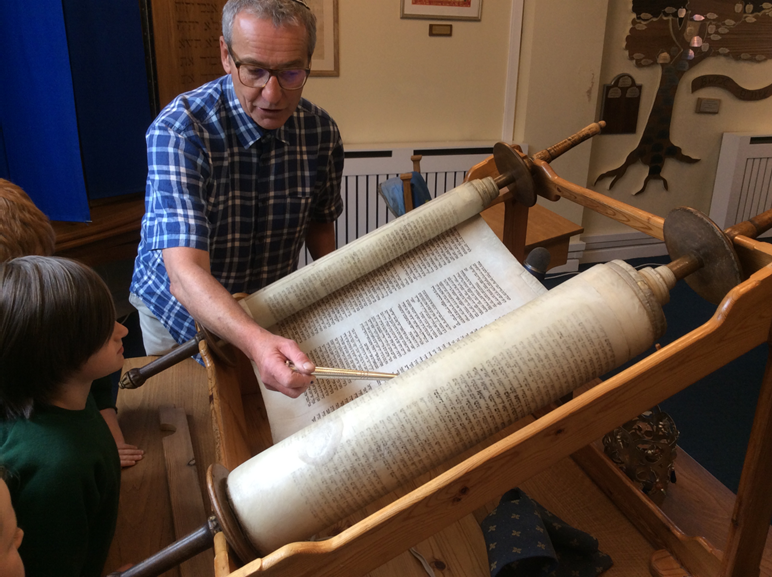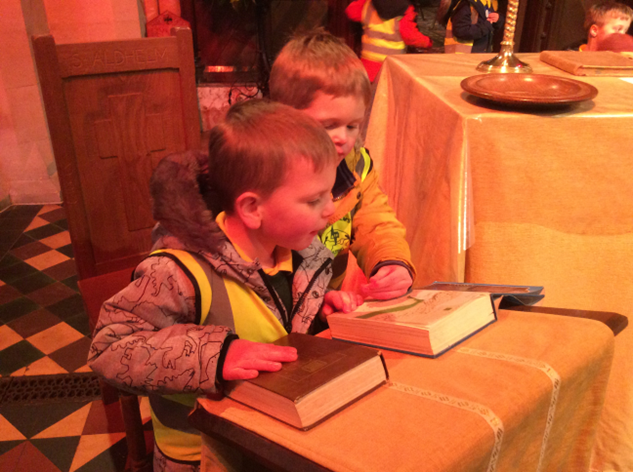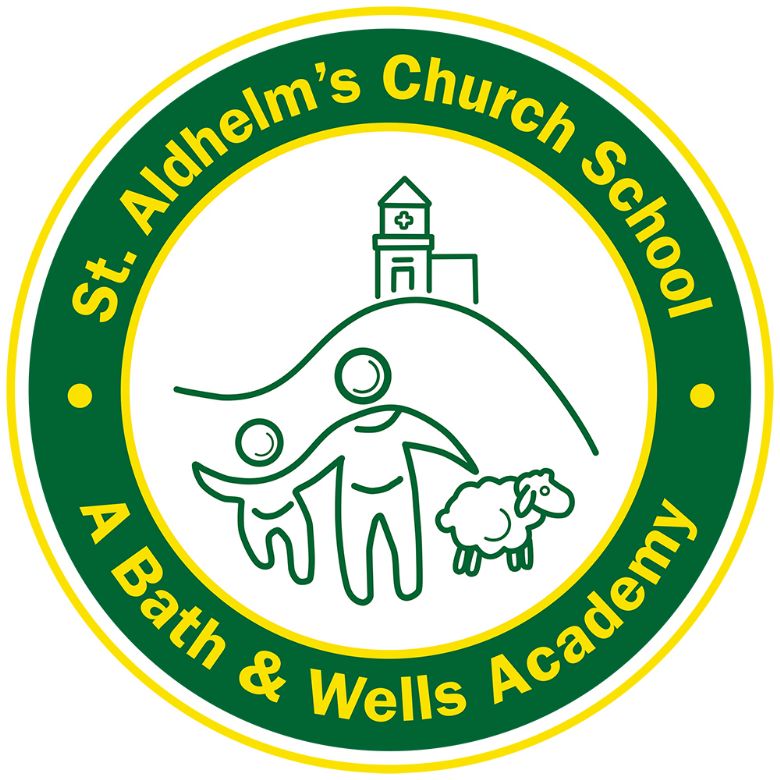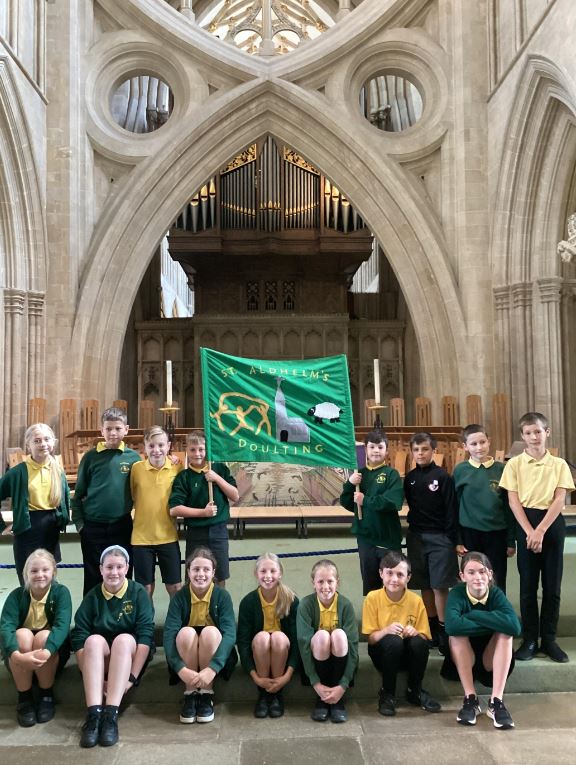RE
St Aldhelm’s RE Curriculum Intent
- Creates learners who are knowledgeable about religion but have had in-depth opportunities to learn from these and to connect these with their own lives and beliefs.
- Encourages children to be respectful, tolerant and accepting of other people’s beliefs, practices and opinions as well as confident to challenge negativity.
- promotes curiosity, inspires, is progressive and outward-looking and through responsive teaching allows children to be challenged but also supported where needed.


RE Curriculum
-
At St Aldhelm's Church School, we use the 2019 Agreed Syllabus from Somerset SACRE Awareness, Mystery and Value as the structure behind our RE Curriculum. To teach these objectives, we combine elements of the 2019 Exemplar Somerset AMV units, along with ideas from Understanding Christianity (Salvation, Incarnation, God and Gospel) as well as other quality resources from training and elsewhere.
As a minimum, we fulfil the statutory time allocation of 36 hours per year for Early Years Foundation Stage and Key Stage 1 and 45 hours per year for Key Stage 2 which roughly equates to 1 hour per week for EYFS/KS1 and 1 ¼ hours per week for KS2.
Our St Aldhelm’s Long Term Plan for RE has been carefully built to create a progressive but broad and balanced whole school RE curriculum which allows children to learn about religion (AT1) and from religion (AT2). In Key Stage 2, we cover the four major religions (Christianity, Hinduism, Islam and Hinduism) and in EYFS and Key Stage 1, we cover Christianity as well as our chosen option of Judaism. From Year 1 upwards, the children also learn about non-religious worldviews in their Humanism unit.
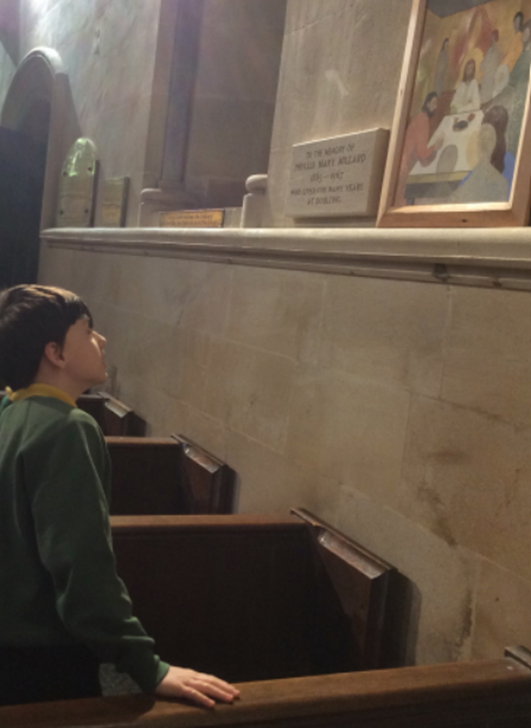
We use a mastery approach in RE like other curriculum subjects with the expectation that all children, when given the correct support and resources, can achieve. In the same way as maths for example, any children who show that they have not yet the Learning Objective, will be noted and will be given different but additional support in order to grasp that concept. Assessment for Learning will sit alongside the teaching process to ensure that this happens.
Independent opportunities will be used which can be used to revise, refresh and assess children’s knowledge. These could be creative opportunities such as multiple-choice quizzes, choosing the odd one out and justifying their answers, making connections between different concepts, deciding on true and false.
All RE projects will have an enquiry question title. Children may start with an elicitation task where they consider what they already know relating to the question, what they would like to learn more about and how they could find out more. If children create their own questions, then they should be given the opportunity to find out the answers to these.
We build a variety of visits and visitors into our RE curriculum.
